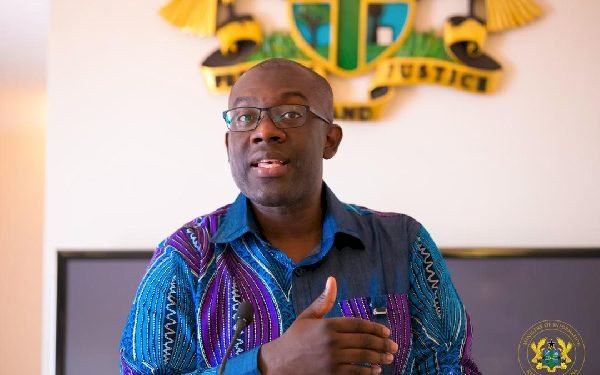An economy that can’t keep lights on can’t afford a ventilator’- Oppong Nkrumah

Information Minister, Kojo Oppong Nkrumah has responded to former President John Dramani Mahama and other critics who are of the view that the Ghanaian economy is in tatters a month of COVID-19.
The former President and flagbearer of the opposition National Democratic Congress (NDC), John Dramani Mahama during a recent digital interaction said the much-hyped economy by the governing New Patriotic Party has failed the test of time as it is currently in shambles.
“Unfortunately, this government has used a lot of propaganda saying the economy has been the best that we have ever had since independence. Unfortunately, just one month of coronavirus the economy is in ICU.
If we didn’t run to the IMF for the one billion rapid credit facility, it is possible that in the next month probably salaries would not have been paid and so our economy is on ventilators, and it needs thinking to rescue it from the ICU,” Mahama said.
But the Information Minister at a press briefing on Tuesday, April 28, 2020, insisted that the current economy is resilient compared to the one they inherited from the previous government.
“An economy that can’t keep the lights on will not be able to afford a ventilator let alone to keep it functioning to save lives. We have come far as a country on a more serious note, building a strong economic base to fund all that we are doing,” he responded.
Ghana’s ‘robust’ economy can afford policy interventions - Oppong Nkrumah
Oppong Nkrumah also argued that the robust economy built by the government since it assumed office in January 2017 has enabled it to embark on the many interventions and programmes undertaken since the first two cases of COVID-19 were confirmed in Ghana in March 2020.
“Our current economic positioning is a major reason for which we are able to marshal the resources to execute a good number of the interventions we are introducing today.” “Moving forward, the state of our economy will be key in our ability to introduce the necessary interventions to win the various battles in this war,” he noted.
Last Sunday, the President, Nana Akufo-Addo announced a policy objective to construct 94 new district and regional hospitals in areas without government hospitals.
The President also made a further announcement of the construction of three infectious disease centres to be built in the northern, middle and southern belts of the country. The announcements have elicited a debate over whether or not the country’s economy is able to cater for the announced projects.
Some people have indicated that the government cannot finance the projects because the economy is not resilient enough. But the Information Minister, at a press briefing on Tuesday, April 28, 2020, gave the assurances that “our current economic positioning is a major reason for which we are able to marshal the resources to execute a good number of the interventions we are introducing today.”
“Moving forward, the state of our economy will be key in our ability to introduce the necessary interventions to win the various battles in this war,” he noted.
While indicating that the basis for such concerns is genuine, Kojo Oppong Nkrumah said the country’s economy has significantly improved and now able to afford the programmes and interventions being introduced by the government in the COVID-19 fight.
“It makes sense why some may question whether or not Ghana can afford all the interventions the President has outlined in the past about 8 weeks of the COVID-19 response program.
This question is justified because looking at our recent economic position, and the gains made recently as a nation, there is the genuine fear that we may be unable to afford the interventions or may end up overstretched if indeed we push through to execute them all,” he said.
Moody’s Downgrades Ghana’s Economy To Negative
Rating agency, Moody’s, on Monday, April 20, 2020, downgraded Ghana’s economic outlook to negative from positive. It, however, affirmed Ghana’s long-term local and foreign currency issuer and foreign currency senior unsecured bond ratings at B3.
The downgrade of the Ghanaian economy is purely due to the COVID-19 pandemic which has affected the fiscal economy as a result of the significant decrease in tax revenue as well as a systemic risk which the rating agency said has increased.
Moody’s had changed Ghana’s sovereign ratings from stable to positive only in January this year. The outbreak has caused an unprecedented shock across a wide range of global sectors, markets, and regions.
Ghana is particularly vulnerable to these shocks, due to high reliance on external financing both in local and in foreign currency, and very weak debt affordability.
